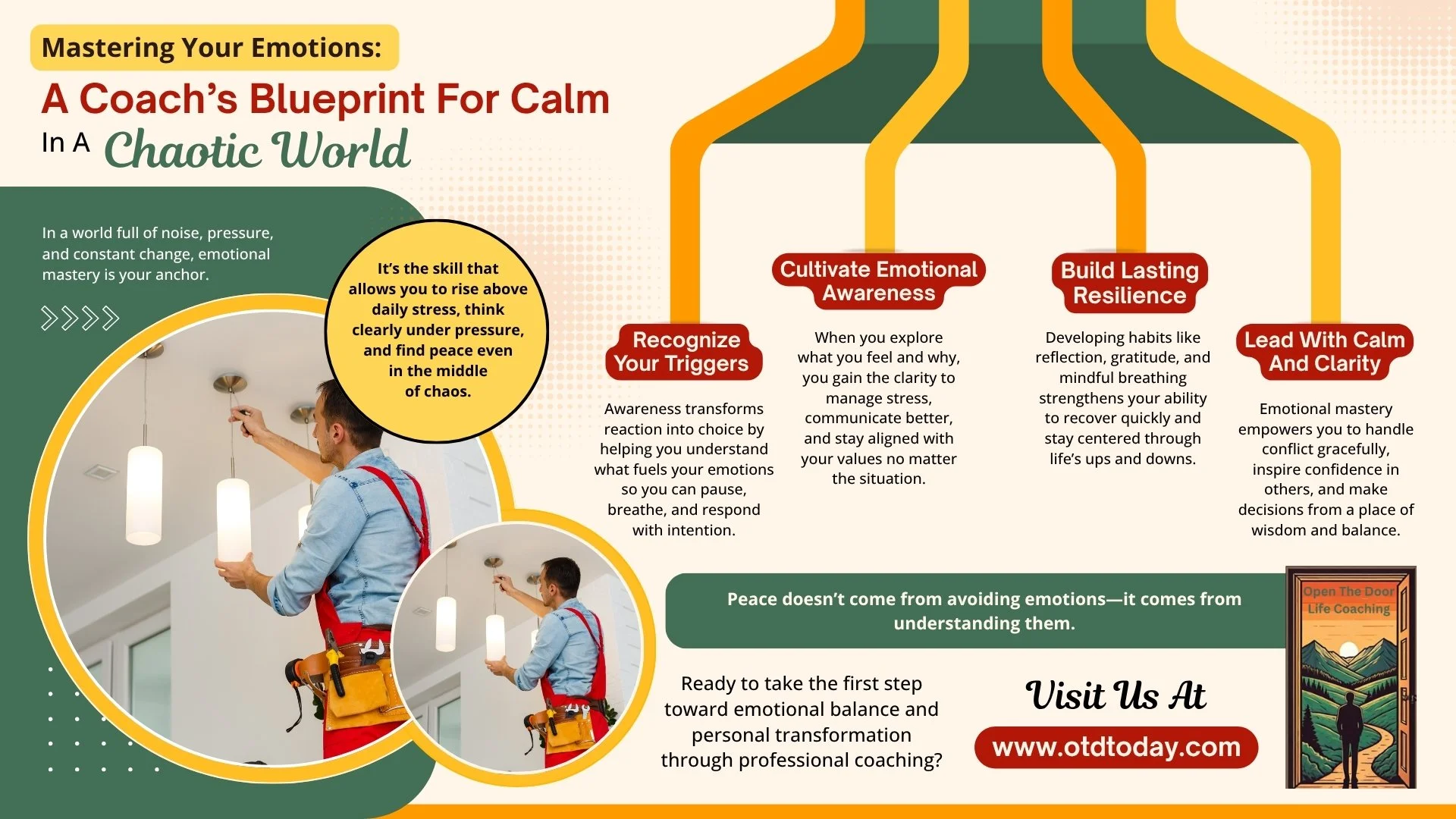From Reaction to Response: A Coach’s Guide to Emotional Regulation in a Triggering World
In today’s fast-paced world, it’s easy to react impulsively when faced with stress, criticism, or conflict. However, emotional regulation coaching teaches us that true strength lies in the ability to respond thoughtfully instead of reacting automatically. By building proactive skills and aligning our actions with spiritual principles, we can navigate life’s challenges with confidence, clarity, and purpose.
Understanding Emotional Regulation
Emotional regulation is the process of recognizing, understanding, and managing our emotional responses to various situations. Without these skills, stress can lead to reactive behavior, strained relationships, and internal frustration. Through coaching, clients learn techniques that help them pause, reflect, and choose their responses intentionally, transforming emotionally charged moments into opportunities for personal growth.
Unlike reactive coping strategies that temporarily suppress emotions, emotional regulation coaching emphasizes long-term skill-building. It empowers individuals to recognize triggers, manage impulses, and make decisions that honor both their well-being and spiritual values.
The Role of Faith in Emotional Strength
For those seeking a Christian perspective, emotional regulation is not just a mental skill, it is a reflection of spiritual maturity. Developing emotional clarity allows us to align our responses with God’s guidance and gain insight from prayer and reflection. Faith-based coaching encourages clients to view challenging emotions as opportunities to practice patience, assertiveness, and self-control while deepening their relationship with God.
By integrating biblical principles into emotional regulation, clients discover that assertiveness is not confrontation, it is the fruit of healthy boundaries and thoughtful decision-making. This approach strengthens resilience, promotes accountability, and encourages clarity of mind.
Practical Strategies for Moving From Reaction to Response
1. Pause and Reflect: Take a moment to breathe and assess the situation before responding. This small action allows your response to be intentional rather than reactive.
2. Identify Triggers: Recognize patterns in your emotional reactions. Awareness of triggers is key to managing emotional responses proactively.
3. Use Scripture and Prayer: Lean on your faith to guide reactions, drawing strength and perspective from biblical teachings.
4. Practice Assertive Communication: Express your thoughts and needs clearly while respecting others, reinforcing boundaries without conflict.
5. Consistent Coaching Support: Regular sessions with a Christian life coach or spiritual coach can help refine these strategies and track progress toward personal growth.
Benefits of Emotional Regulation Coaching
· Enhanced self-confidence and mental clarity
· Improved communication and relationship skills
· Reduced stress and better work-life balance
· Deeper connection to spiritual values and God’s guidance
Clients working with Devin A. McNeil experience the unique integration of practical coaching skills with spiritual guidance. Whether engaging in online life coaching, attending local sessions, or exploring online lessons, clients develop tools to respond with intentionality and maintain healthy boundaries in all areas of life.
When emotional challenges arise, moving from reaction to response can transform relationships, career decisions, and personal well-being. By combining the guidance of a faith-based coach, scripture-inspired reflection, and structured strategies, individuals cultivate resilience and confidence that lasts.
If you’re ready to gain control over your responses and strengthen your emotional resilience, explore our coaching programs, enroll in online lessons, or contact Devin McNeil for personalized support in your journey toward clarity, faith, and growth.



